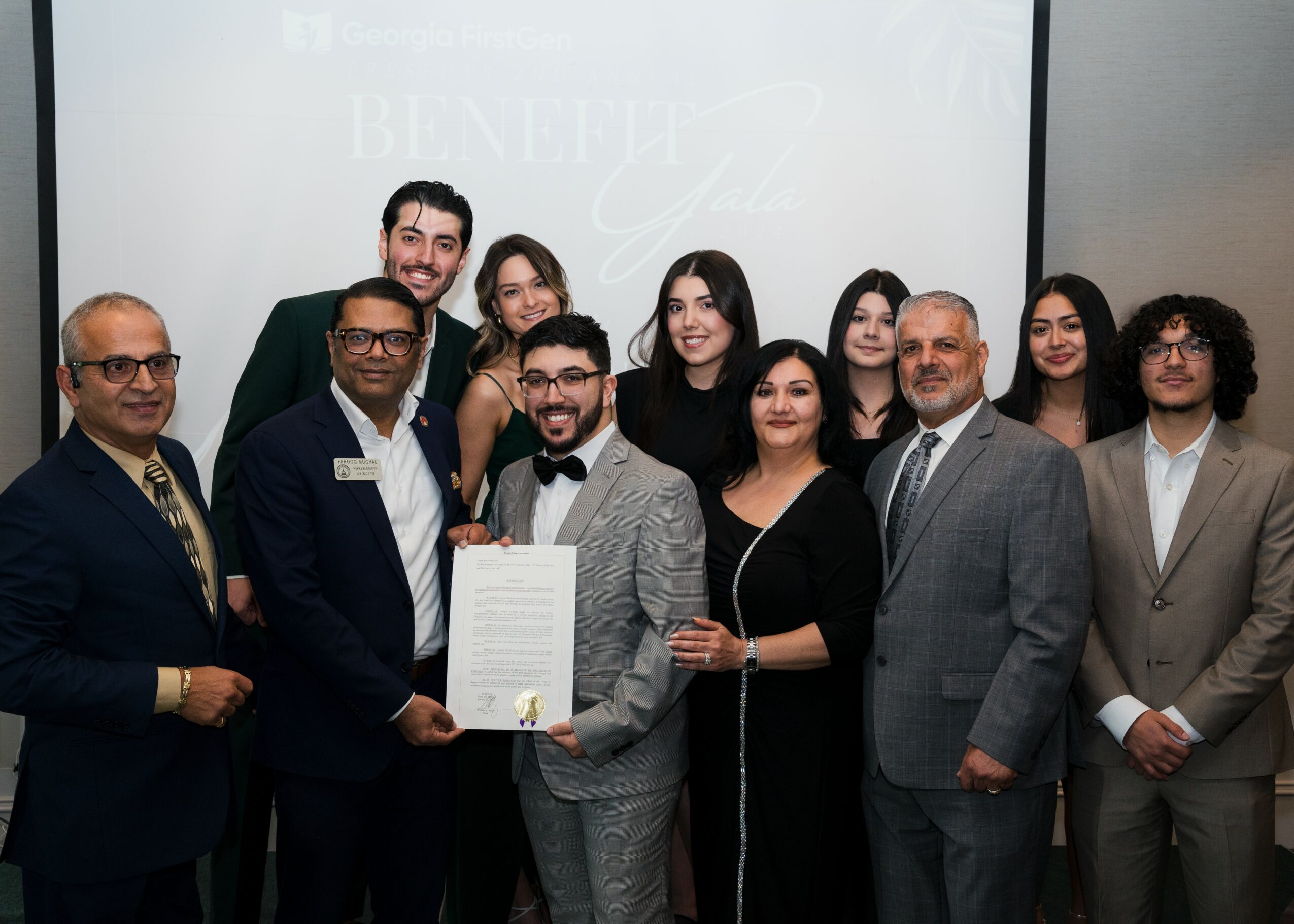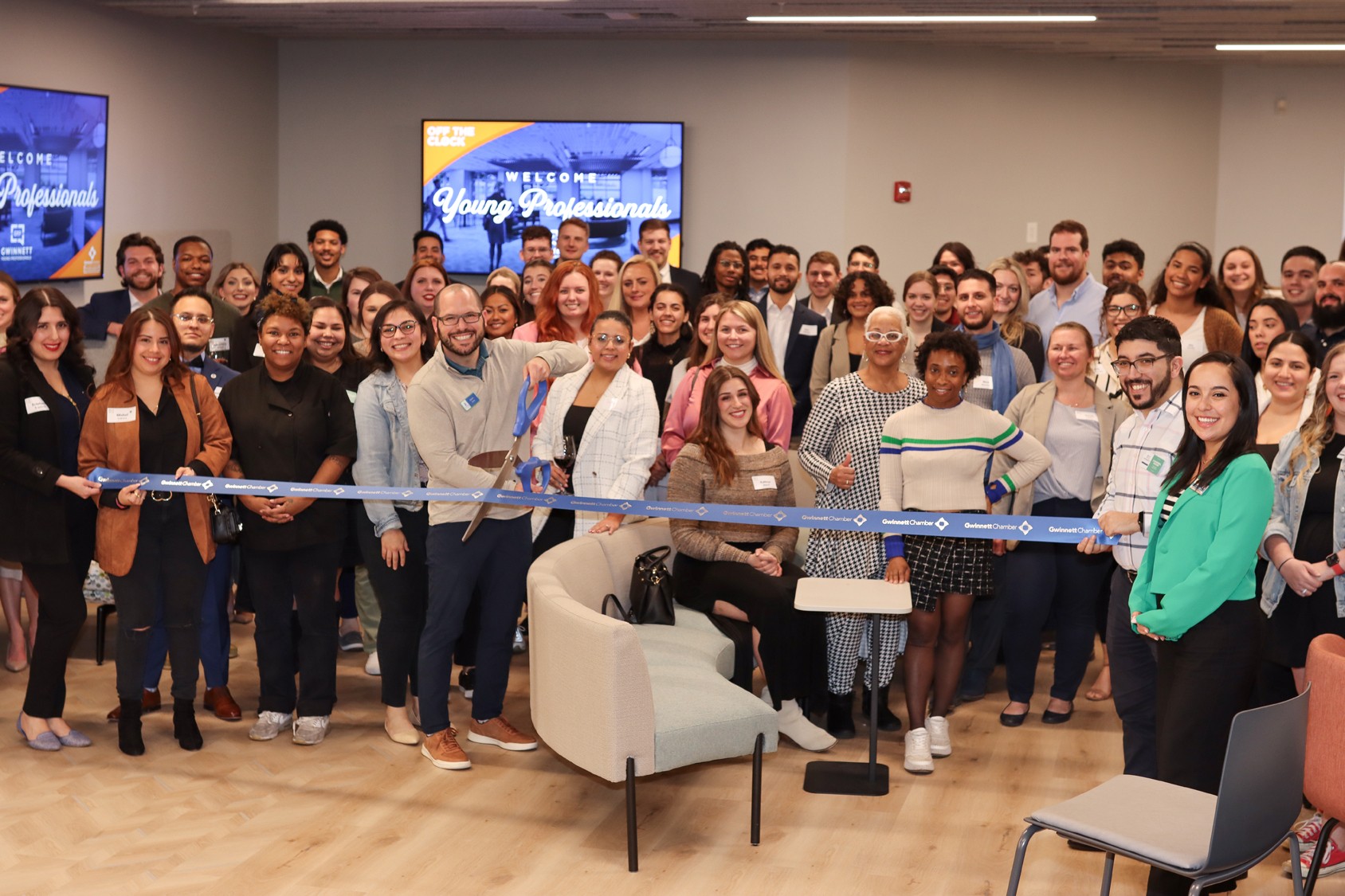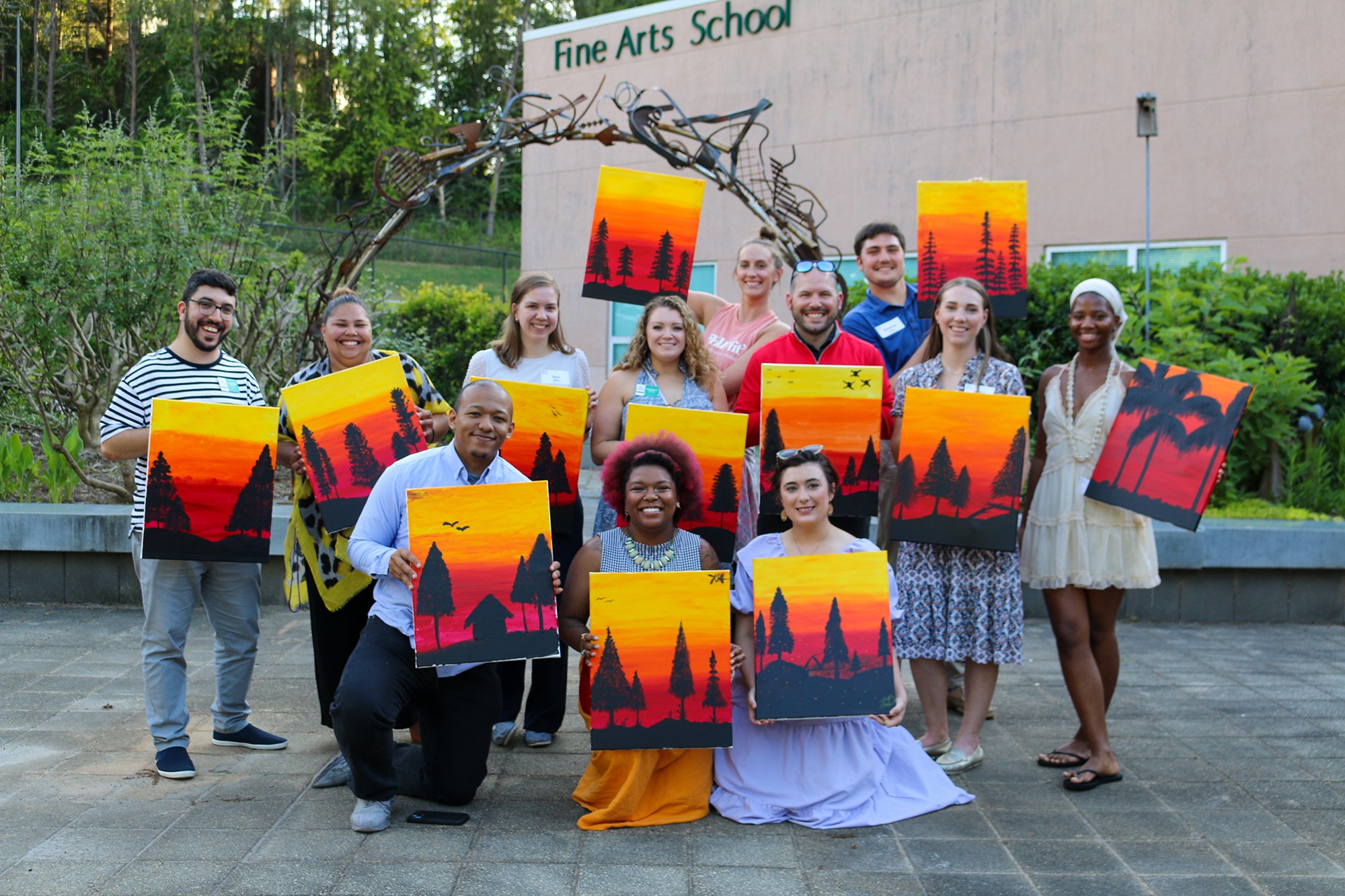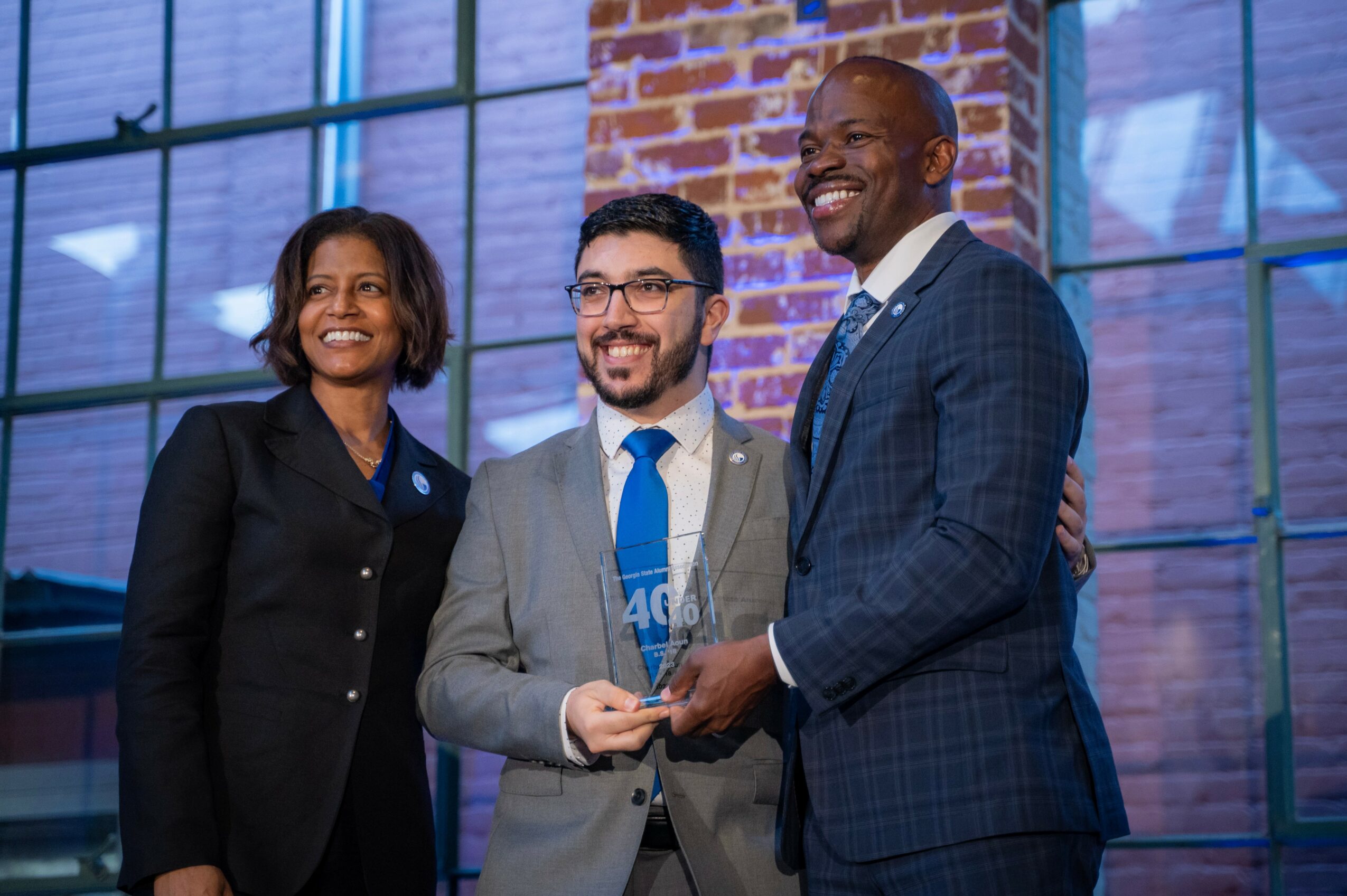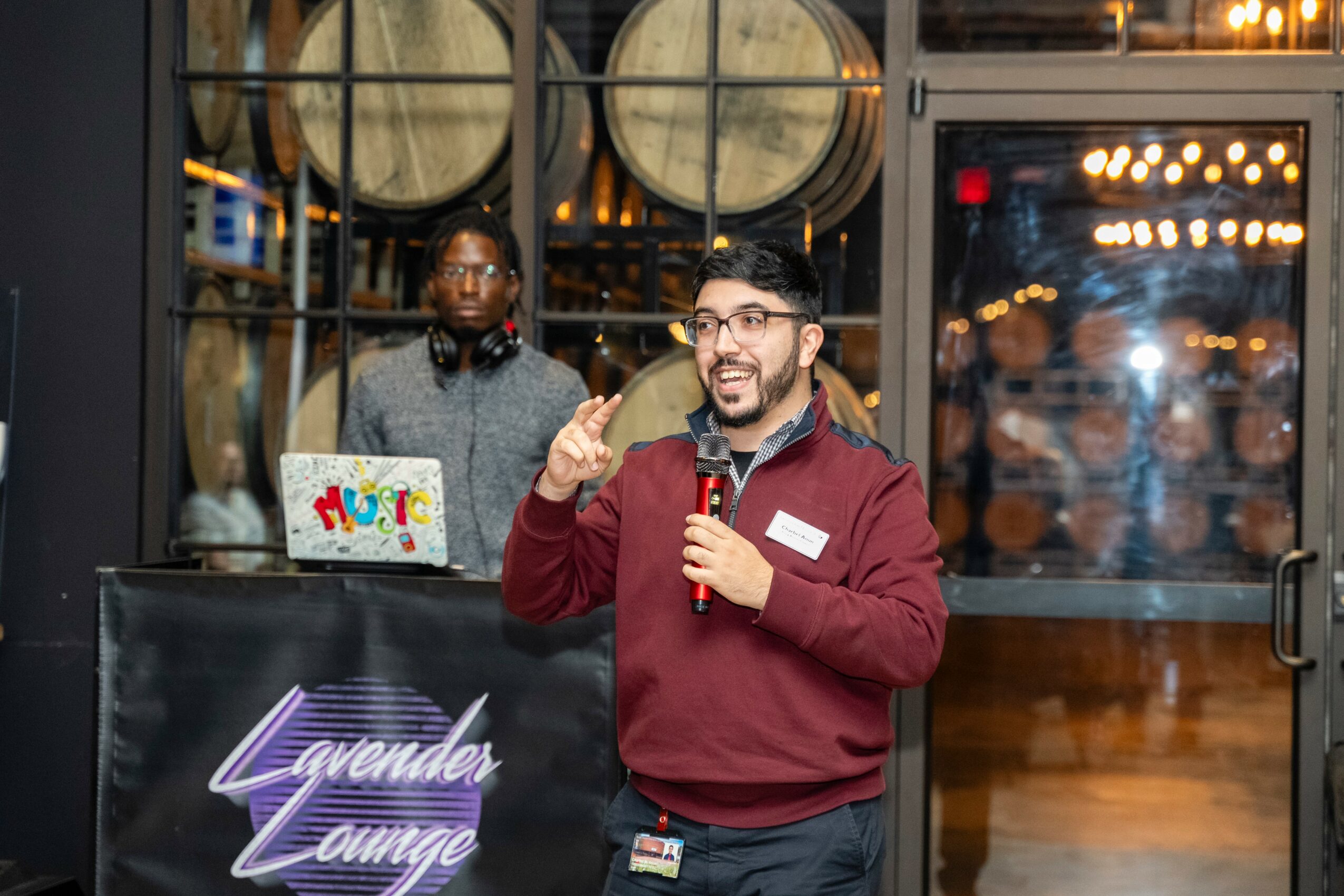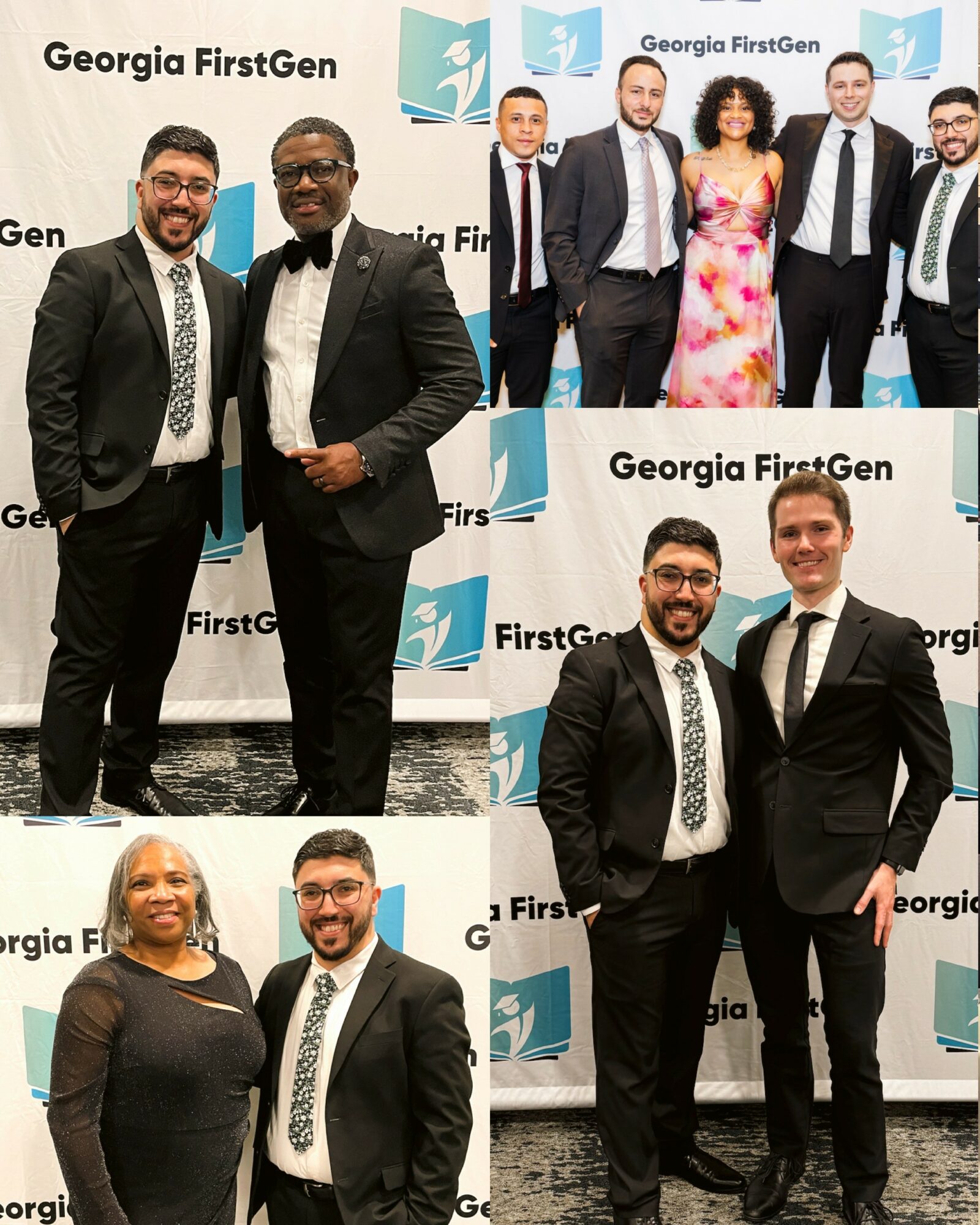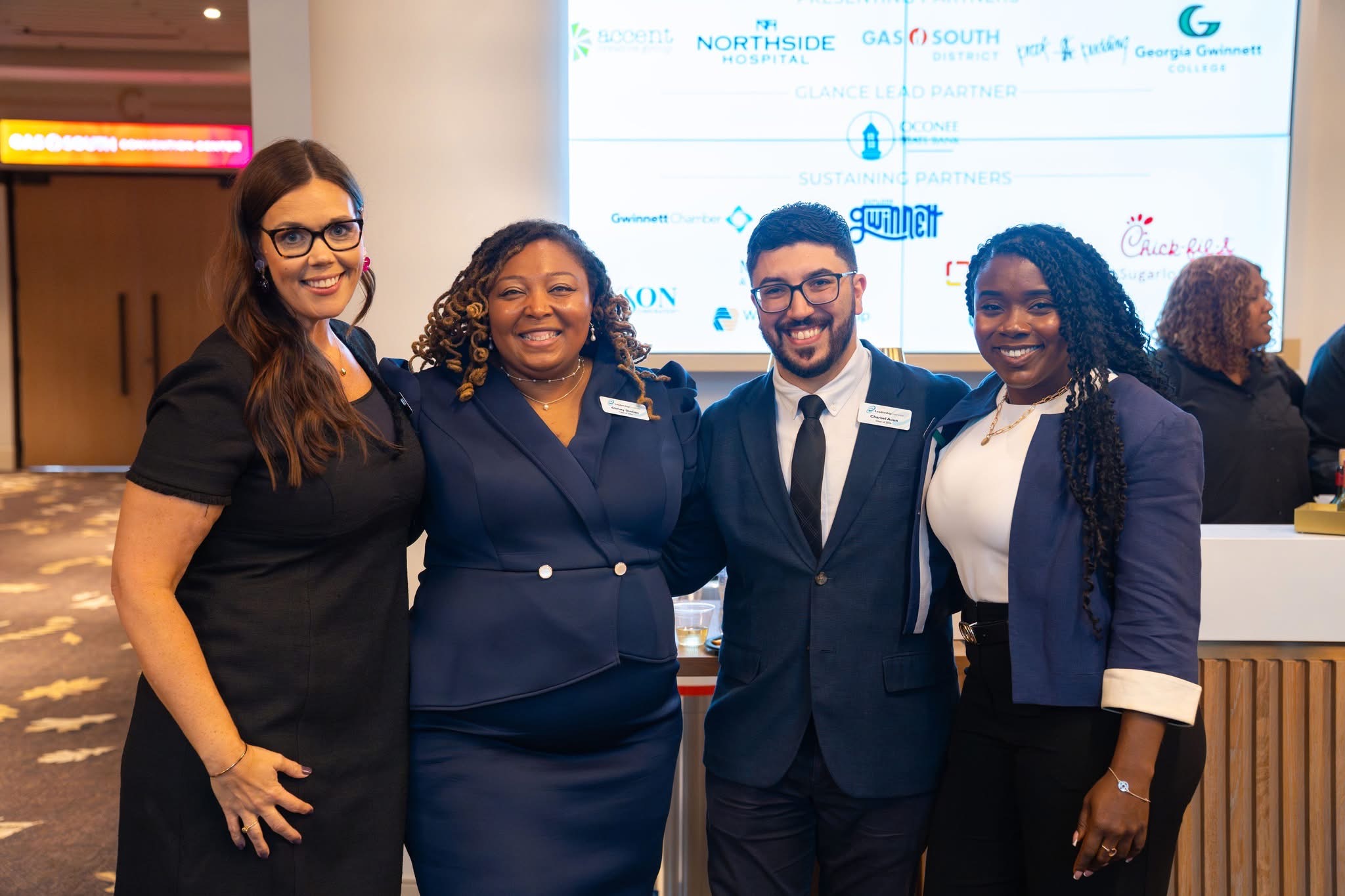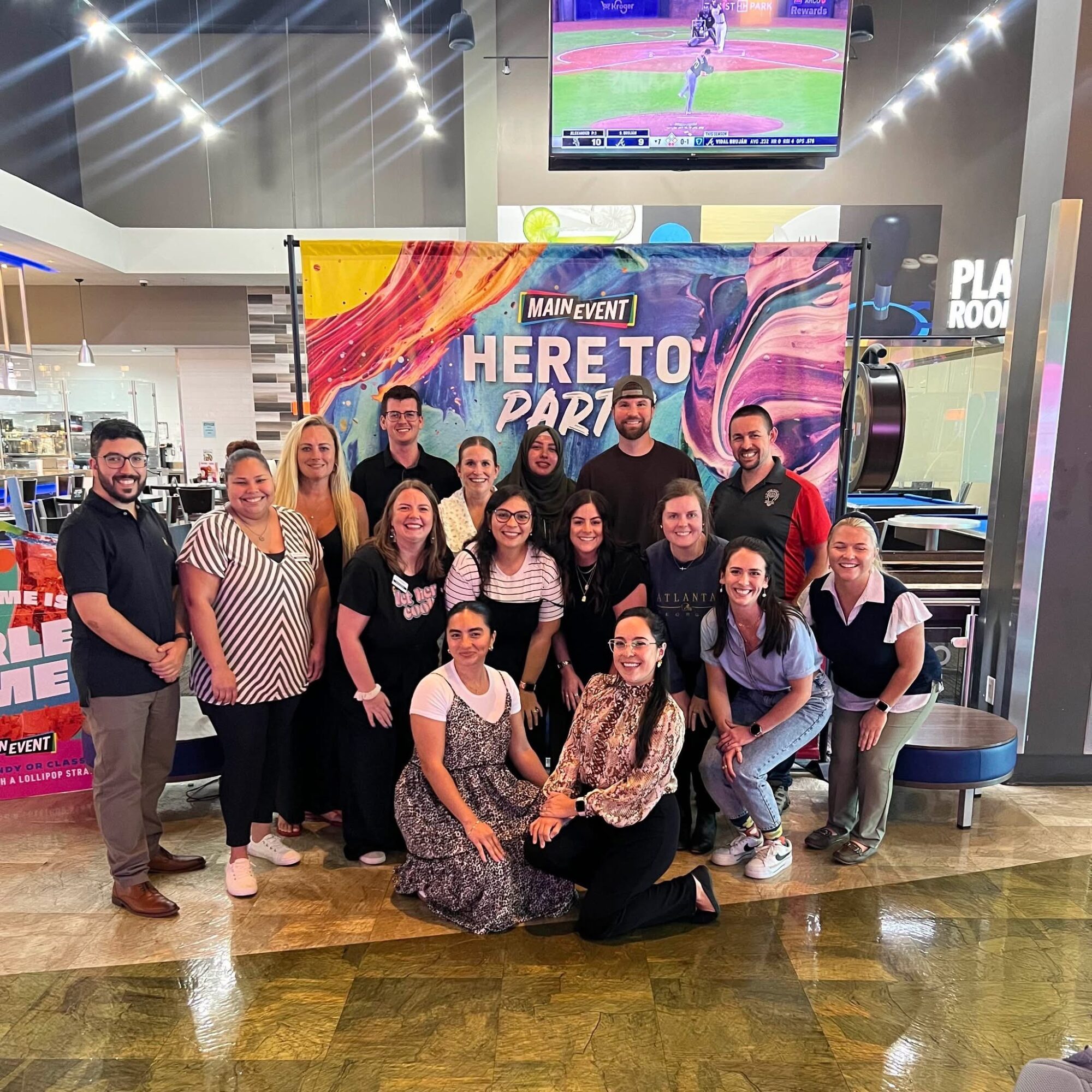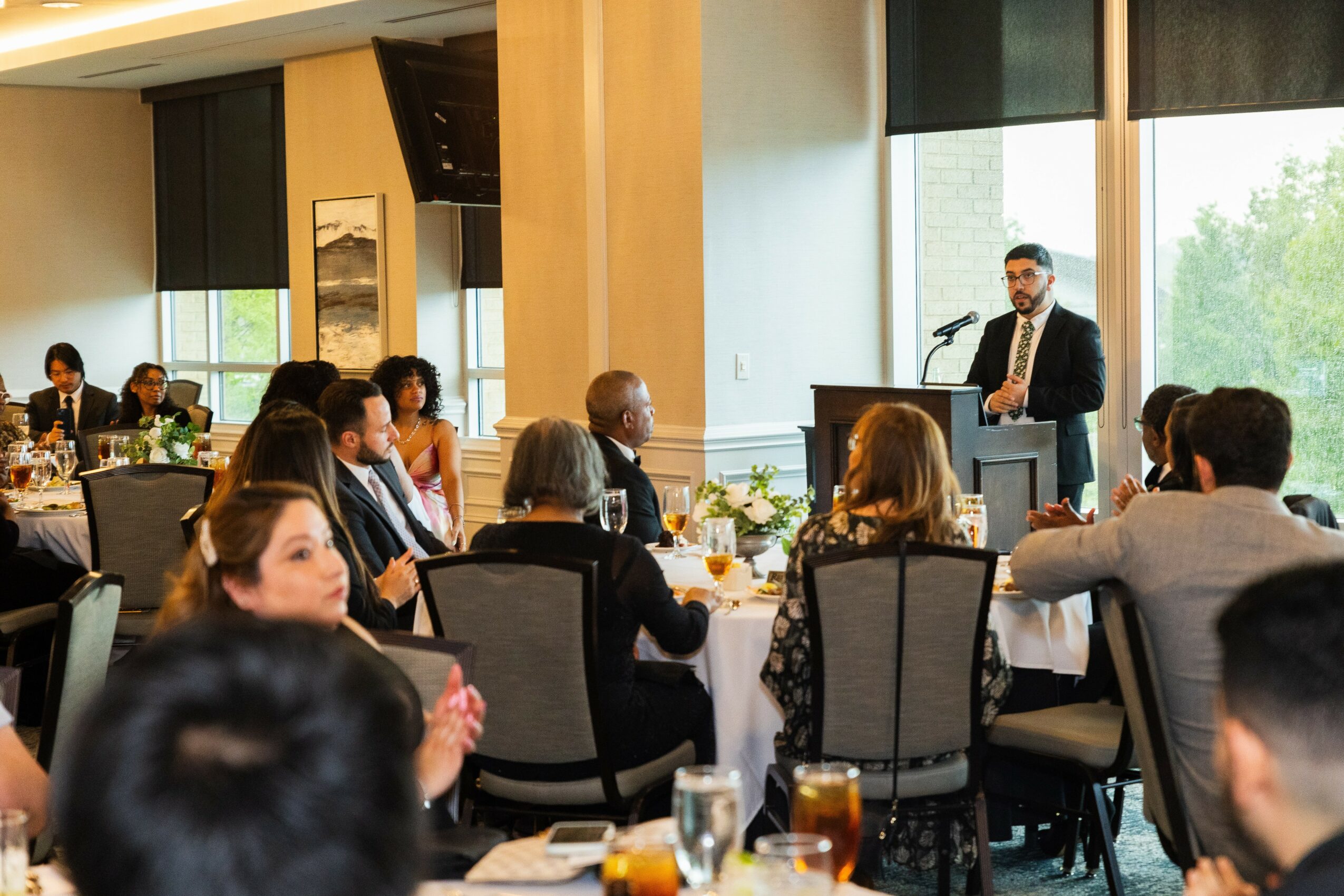

We’re looking forward to introducing you to Charbel Aoun. Check out our conversation below.
Charbel, it’s always a pleasure to learn from you and your journey. Let’s start with a bit of a warmup: What are you chasing, and what would happen if you stopped?
What am I chasing?
I’m chasing myself ten years from now. And that guy? He’s still leaps and bounds ahead of me because he keeps growing, keeps evolving, keeps building things I can’t even imagine yet. But let me be more specific. I’m chasing the moment when first-generation students don’t have to start from scratch the way I did. I’m chasing national infrastructure, you know, the real, sustainable systems, so that being first-gen becomes recognized as the leadership advantage it actually is, not some deficit that needs to be “overcome.” I’m also chasing something deeper, something I don’t always admit out loud: I’m chasing proof that this matters. That the 11 PM texts from students, the programs that didn’t work out, the constant pressure to keep producing; that it all adds up to transformation, not just transactions. That I’m building doors that stay open, not just helping individuals walk through temporary openings.
What would happen if I stopped?
Here’s the thing that both terrifies and comforts me: Georgia FirstGen would continue. The Under 40 Awards would find new leadership. The students I’ve mentored would continue to mentor others. And honestly? That’s exactly what I’ve been building toward. Success isn’t me being indispensable; it’s me becoming obsolete because I’ve developed so many other leaders. But if I personally stopped? I’d lose something essential. This work isn’t “work” in the way most people experience their jobs. It’s purpose. It’s calling. It’s where my Lebanese heritage’s fearless resilience meets my healthcare training’s systems thinking meets my first-gen identity’s understanding that every door I build isn’t just for me. The real question isn’t what happens if I stop chasing, but rather, it’s what happens if I ever catch up. And here’s the beautiful, exhausting truth: you never do. That future version of yourself keeps evolving, which means the circle keeps getting larger even as you’re trying to fill it. Growth never completes the circle. It just shows you how much more is possible.
Can you briefly introduce yourself and share what makes you or your brand unique?
My name is Charbel, and in Arabic, it translates to “story of God.” Something that gets read over and over again when people need guidance or a reminder that they’re not alone. I’ve tried to live up to that meaning.
I’m a healthcare professional, nonprofit founder, and adjunct professor who operates at the intersection of healthcare, education, and first-generation advocacy. I founded the Georgia First Generation Foundation when I was 19, after receiving a full-ride scholarship to college and attending the celebration luncheon, where I expected to find my tribe. Instead, I felt more isolated than ever. That gap between access and belonging? That’s what I’ve spent the last decade trying to close.
What makes our work unique: We created the only Under 40 recognition program in the country, specifically for first-generation professionals. Not just students but professionals. Because being first-gen doesn’t end at graduation. It’s a lens that shapes how you navigate every room you enter for the rest of your life.
We’ve pivoted our model three times: from high school chapters to mentorship programs to our current event-curation approach. Because resilience isn’t about one perfect plan. It’s about adapting when circumstances demand it, which is exactly what first-generation communities have always done.
What makes me different: I don’t separate my identities. I’m Lebanese-American, so I bring that cultural fearlessness and joy to everything I do. I work in pharmacy, so I understand systems, compliance, and how to navigate complex bureaucracies. I’m pursuing a PhD in organizational leadership, so I’m learning to architect change at scale, not just create programs that feel good.
But here’s the real story: I wrote a book called “The Door Builder” because I got tired of waiting for opportunities to knock. If opportunity doesn’t knock, build a door. And once you build enough doors? You don’t just gain access, you become an architect of change. That’s what I’m building: a generation of first-gen leaders who understand they’re not problems to be solved, but pioneers creating maps for everyone who comes after them.
Amazing, so let’s take a moment to go back in time. What breaks the bonds between people—and what restores them?
Unmet expectations break bonds faster than anything else. Not the kind you talk about, the silent ones. The ones where you assume someone understands your struggle because you share a demographic label, or where people think proximity equals community. I learned this at that scholarship luncheon. We were all first-generation students in the same room, theoretically perfect for connection. But we never built real bonds because nobody created space for vulnerability, for the messy truth that we were all figuring it out as we went. We performed successfully instead of sharing our struggles. Distance breaks bonds, too, but not geographic distance; it’s emotional distance that matters when people start seeing each other as transactions instead of relationships. When mentorship becomes transactional. When networking replaces genuine curiosity about someone’s story, I often see this happen in professional spaces, where people collect connections like pennies instead of investing in relationships like quarters. And here’s the one nobody talks about: success breaks bonds. When you’re the first in your family or community to achieve something, suddenly there’s distance where there used to be understanding. Your wins can feel like judgment of others’ paths. Your growth can feel like growing away.
Intentionality restores bonds. You can’t just put people with similar backgrounds in a room and expect magic. Real community requires someone willing to create structure, maintain momentum, and do the unglamorous work of actually showing up. Vulnerability restores bonds. When I started sharing the story of being rejected from every medical school I applied to, or the challenges I faced in pharmacy school, or the moments I questioned whether any of this was worth it, that’s when people started really connecting with me. Not when I performed successfully, but when I admitted struggle. Shared purpose restores bonds, too. This is why our Under 40 program works. We’re not just celebrating individual achievement, we’re connecting people around the shared responsibility of opening doors for others. A purpose bigger than any one person creates bonds that survive distance, time, and changing circumstances. And celebration. My Lebanese culture taught me this. When you turn everything into a party, when you find joy in small wins, when you refuse to let struggle steal your capacity for happiness, that creates bonds. People remember how you made them feel during vulnerable moments more than they remember what you did for them. But here’s what I’ve learned: bonds don’t restore themselves. Someone has to do the work. Someone has to reach out first, create the space, and maintain the connection. And in first-generation communities, we can’t wait for someone else to do it. We have to be the ones building the bridges we wish existed. The same principle that applies to doors applies to bonds: if connection doesn’t happen naturally, build it intentionally.
What’s something you changed your mind about after failing hard?
I used to believe that if you built the perfect program with the proper structure and clear outcomes, success was inevitable. Good planning, combined with hard work, equals predictable results. Then COVID destroyed our entire chapter model overnight. We had spent years building infrastructure for high school chapters across the state of Georgia. Materials, training programs, and educator relationships are all designed for physical presence and ongoing structure. And suddenly, none of it mattered. Schools closed. Our champion teachers were drowning. The whole system we’d built just… stopped working. Initially, I thought we had failed. That all those years of work were wasted. That I should have planned better, anticipated better, been smarter about building something resilient.
But here’s what failing hard taught me: resilience isn’t about building things that can’t break. It’s about building things—and people—that can adapt when they do break. I changed my mind about control. About perfection. About what success even means. Before that failure, I measured success by the number of chapters we had, the students we served, and the programs we ran. I thought bigger and more structured always meant better. I was obsessed with replicating a model that “worked.”
After failing hard, not once but three times as we pivoted our entire approach, I realized that the most important thing we were doing wasn’t the programs themselves. It was creating a mindset and teaching first-generation students and professionals that they’re pioneers who build their own maps, not recipients who follow prescribed paths. Our current event-curation model would have felt like a failure to the 22-year-old version of me. “You’re just hosting events? Where’s the structure? Where’s the sustainability? Where’s the long-term program model?”
But 29-year-old me understands something younger me didn’t: the best systems are the ones that can evolve without permission. When we stopped trying to control every outcome and started creating platforms for organic community building, something more powerful emerged than anything we could have programmed. I also changed my mind about failure itself. I used to think failure meant something was wrong with me; that I wasn’t smart enough, strategic enough, experienced enough. Now I understand that failure is just information. It’s the universe saying, “Not that way, try this way instead.”
The students who connected through our chapter model? They’re still supporting each other years later, even though the formal structure has since disappeared. The mentorship relationships that started through our program? Many of them continued independently when funding dried up. The honorees from our Under 40 awards? They’re creating their own collaborations and opportunities that we never could have designed.
Failure taught me that I was building the wrong thing. I thought I was building programs. I was actually building people. And people don’t need perfect systems; they need permission to create their own.
I think our readers would appreciate hearing more about your values and what you think matters in life and career, etc. So our next question is along those lines. What do you believe is true but cannot prove?
I believe that first-generation identity is one of the most underutilized leadership resources in America right now. However, I can’t prove it with data, metrics, or controlled studies. Here’s what I mean: I believe that the skills we develop, navigating systems without roadmaps, translating between worlds, building networks from scratch, and creating opportunities where none existed, aren’t just survival mechanisms. They’re precisely the capacities organizations need most in a rapidly changing, increasingly complex world. I believe that when institutions truly understand what first-generation professionals bring, not what we lack, but what we contribute, it will transform their entire perspective on talent development, innovation, and leadership.
However, I can’t prove this yet because we’re still operating in a paradigm where first-generation identity is seen primarily as a deficit to compensate for, rather than a strength to leverage. We measure success by how well first-gen students assimilate into existing structures, not by how they transform those structures. I also believe this: every first-generation person who succeeds creates exponentially more opportunity than their individual achievement suggests. Not just through role modeling or representation, but through something more fundamental: a shift in what communities believe is possible.
When I walk into a room as a Lebanese-American first-generation professional with a background in pharmacy, a nonprofit, and a PhD in progress, I’m not just representing myself. I’m expanding what people in my community can imagine for themselves. And they’ll develop it further for the people who come after them. But you can’t measure that in grant reports or outcome studies. You can’t put it in a spreadsheet. Here’s the deepest one, the one that keeps me going when everything else feels impossible: I believe the work we do now will fundamentally change what’s possible for generations we’ll never meet. The doors we’re building, the systems we’re creating, and the narratives we’re shifting will compound in ways we can’t predict or control.
Fifty years from now, first-generation students won’t struggle the way we did because we laid the groundwork they won’t even know exists. They’ll walk through doors we built and kept open. I can’t prove any of this. There’s no control group for generational change. There’s no way to measure the impact of changing someone’s sense of what’s possible. But I’ve seen it. In the student who started their own organization after seeing ours. A professional who hired other first-gen talent after being recognized through our awards. In the parent who suddenly believes college is possible for their child because they met someone who made it. Faith isn’t the absence of evidence, but it’s action in the presence of incomplete evidence. And everything I do is built on the faith that the circle keeps getting larger, that pioneers create paths for explorers, and that making the first generation the next generation isn’t just a slogan. It’s an inevitability we’re actively working to develop.
I can’t prove it yet. But I’m building like it’s already true.
Okay, so before we go, let’s tackle one more area. Are you doing what you were born to do—or what you were told to do?
Both. And neither. And that’s precisely the point.
I was told to be successful. To make my parents’ sacrifices worth it. To get a stable job with good benefits. To be the proof that the American Dream works. That’s the story every first-generation kid inherits. The story of you carries the hopes of generations who never had these opportunities. But what I was born to do? I was born to question why those have to be the only options. Nobody told me to start a nonprofit at the age of 19. In fact, people actively discouraged it. Family members suggested I should focus on finding a “real job.” Mentors warned me about spreading myself too thin. The conventional wisdom was clear: secure your own success first, then give back later.
However, I’ve come to realize that I wasn’t born to follow a script. I was born to write new ones. The pharmacy career? That came after medical school rejections that felt like failure at the time. The nonprofit? That came from frustration that access without community is just isolation. The PhD? That came from recognizing I needed tools to architect change at scale, not just react to individual problems. None of this was planned. None of this was what I was “supposed” to do. However, when I examine what drives me, I see that it’s this obsession with building doors, this refusal to accept that systems can’t be changed, and this need to create opportunities for people who share my background. All of that feels deeply, essentially mine. Not inherited. Not assigned. Mine.
Here’s the complicated truth: the pressure to succeed that I inherited actually permitted me to take risks others couldn’t. Because I had already proven I could navigate traditional paths, I earned the right to deviate from them. My parents’ sacrifices created space for my experimentation. So I’m doing what I was born to do because of what I was told to do, not despite it. The real question isn’t whether I’m following my calling or meeting expectations; it’s whether I’ve created something that transcends both. Whether the doors I’ve built lead somewhere beyond just my own success or my family’s pride. Whether I’ve turned inherited pressure into generational possibility.
And that’s what keeps me up at night and gets me out of bed in the morning: the knowledge that I’m building something that isn’t about me anymore. It began as my story. The story of a first-generation kid trying to prove he belonged. But it’s become something bigger: a movement of pioneers who understand they’re not just succeeding for themselves but creating infrastructure for everyone who comes next.
Was I born to do this specifically? I don’t know. However, I was definitely born to build something that didn’t exist before I arrived. And whether that came from destiny or defiance or some combination of both doesn’t matter as much as what happens because of it.
What I know for sure: I can’t separate what I was told to do from what I was born to do. They’ve become the same thing, forged together through every pivot, every failure, every door I’ve built when opportunity didn’t knock.
And maybe that’s the first-generation thing about me. Taking expectations meant to limit and transforming them into possibilities intended to liberate.
Contact Info:
- Website: https://georgiafirstgen.org
- Instagram: @chrblaoun1
- Linkedin: https://linkedin.com/in/chrblaoun1
- Other: thedoorbuilder.eventbrite.com
charbelaoun.me
tedxsugarhill.com
